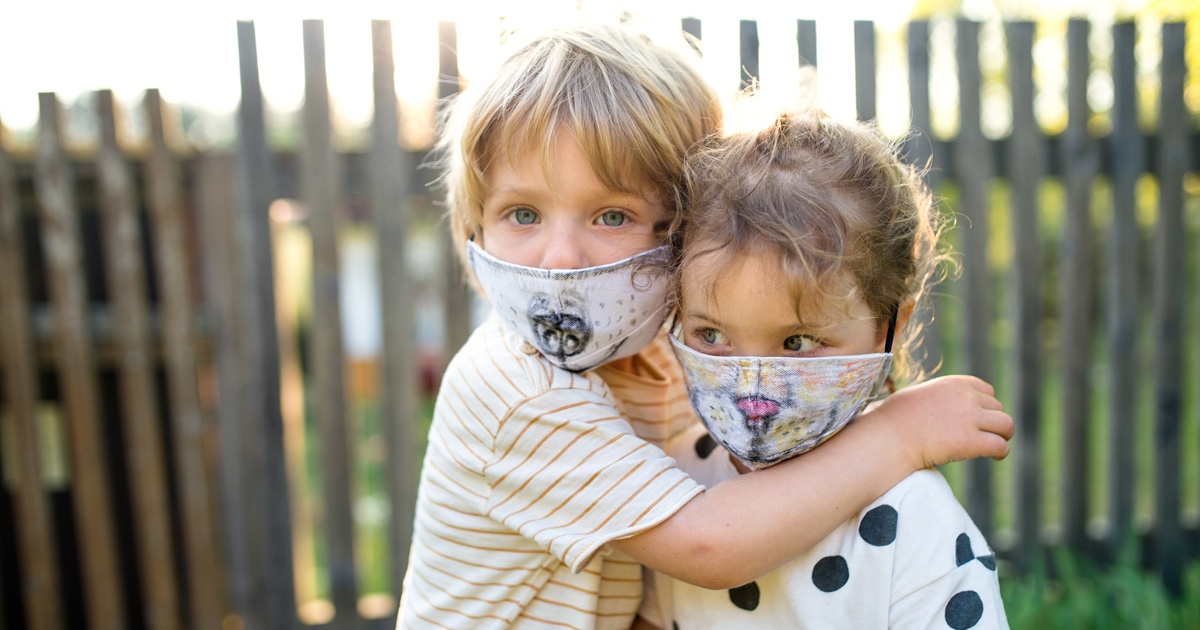COVID-19 has impacted every facet of our lives and it’s clear the effects are here to stay. What does this mean for the world of autism, and the future of autism research, services, and support? In this post, we look at the coronavirus pandemic’s implications for the future of people on the spectrum and the fight for continued acceptance and support.
The Impact for Families
For many families with children on the spectrum, being on city or state-mandated lockdown is even more difficult than it seems. The anxiety of not being able to keep our usual routines and practicing social distancing can be a lot to handle for children on the spectrum. Without the structure that school and therapy offers, some children may experience more behavioral challenges.
On top of that, parents may have to balance their time in and out of the house more carefully. Alternatively, if the whole family can’t leave the house for an extended period of time, that in itself proves challenging to self-care, patience, and space. As families lose their external support, it’s important they take action to support themselves during this difficult time. We recommend some of the following tips:
- Create a schedule, and stick to it: Without the structure of a usual routine, it’s important to create your own. Even if it’s temporary, evaluate how best to use your child’s time to balance their ongoing development with structured breaks and free time.
- Create space: Do your best to designate spaces within your home. Reorganize as necessary to give yourself and your child separate spaces to be productive and to practice self-care. If you have a yard or outdoor space available to you, be sure to utilize it safely.
- Use virtual resources: Though it may feel as if a lot of the burden is on you and your family, there are plenty of virtual resources being created and shared to help everyone through our new normal. Be sure to use them to support your schedule and continued efforts. Apps, podcasts, and blogs await you.
Interested in ABA therapy for your child? Request a free enrollment info kit:
Autism Services
For many, the most concerning challenge that coronavirus poses is its barrier to services and support that children on the spectrum need to succeed. As schools close, children who rely on the school’s resources may be left without the help they count on. For those children who receive ABA therapy services, they may also lose access to their center, or the therapists who they’ve come to trust and learn from. Thankfully many centers are adopting teletherapy as a way to continue some services as a temporary measure ahead of the safe reopening of treatment centers and schools.
Autism Research
Evidence-based treatments like ABA therapy rely on the continued evolution of autism research as a way of optimizing its effects and support. The coronavirus has left no stone unturned in its world-changing wake, including the world of autism research. Conferences have been canceled and clinical trials put on hold. Health journals responsible for publishing many of the articles and studies we rely on have extended their deadlines to allow researchers more flexibility. Thankfully, there is still plenty of research to fall back on, and we expect the academic world to continue pushing the envelope on uncovering autism’s roots, evolution, and symptoms.
For more ABA and autism-related news and tips visit our blog and follow us on Facebook, Instagram, YouTube, and Twitter! If you have questions regarding ABA therapy services or you’re interested in visiting one of our locations, don’t hesitate to reach out to us on our contact page. We’re always here to answer your questions and support your family’s needs as best as we can.



